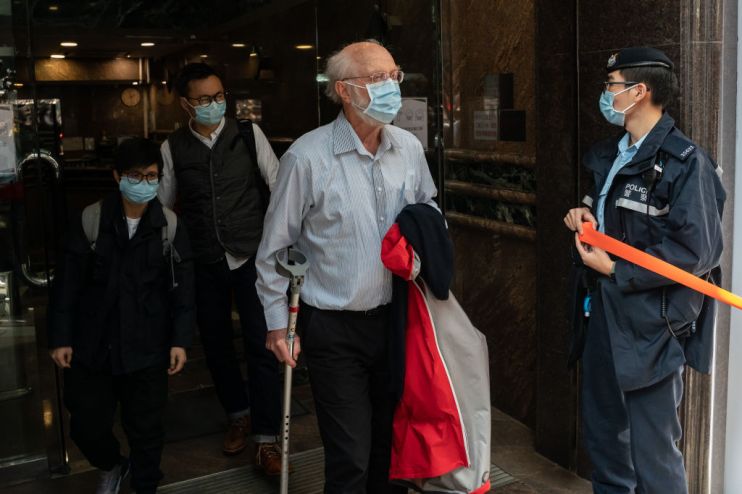Hong Kong police arrest 53 pro-democracy activists in dawn raids

Hong Kong police have today arrested 53 pro-democracy activists in a series of dawn raids in Beijing’s biggest crackdown on the city-state since introducing controversial new security legislation last year.
Almost 1,000 police officers were involved in raids on 72 premises across the city, which saw some of the former British province’s most prominent activists arrested.
The operation was connected to an independent vote last summer to select opposition candidates for legislative elections.
The offices of media firms Apple Daily, Stand News, and Inmediahk were all targeted in raids, as were the offices of a pollster and law firm.
Hong Kong’s secretary for security John Lee said that those targeted by the operation were planning to “overthrow” Hong Kong’s government.
“The operation today targets the active elements who are suspected to be involved in the crime of overthrowing, or interfering seriously to destroy the Hong Kong government’s legal execution of duties”, he said.
Today’s operation is the latest sign of growing authoritarianism in the city since the Beijing government imposed a National Security Law last June.
Before the Open newsletter: Start your day with the City View podcast and key market data
Critics say that the measures quash wide-ranging freedoms given to the city-state when it was returned to Chinese rule in 1997.
Incoming US President Joe Biden’s pick for secretary of state Antony Blinken wrote on Twitter:
“The sweeping arrests of pro-democracy demonstrators are an assault on those bravely advocating for universal rights. The Biden-Harris administration will stand with the people of Hong Kong and against Beijing’s crackdown on democracy.”
At the time, the city government and Beijing warned that the unofficial democratic primary may violate the new law.
Officials said that a campaign to win a majority in Hong Kong’s 70-seat legislature in order to block government proposals could be seen as subversive.
Hong Kong’s leader is not directly elected and only half the legislative seats are, with the other half stacked mostly with pro-Beijing figures.